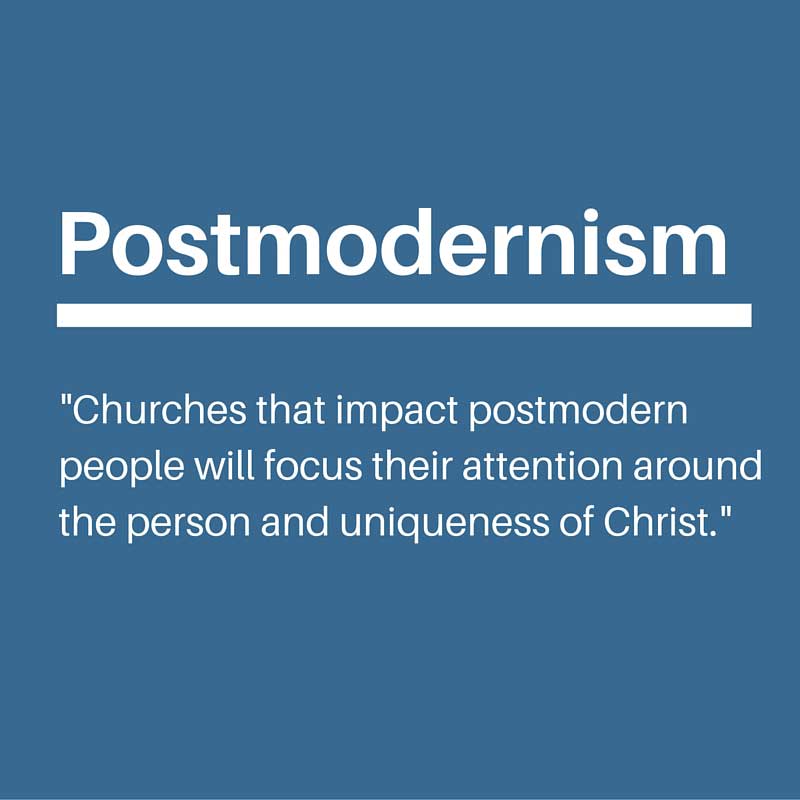Christians are to be neither modern nor postmodern in our thinking patterns or lifestyle. Our goal is not buy into the oldest or latest philosophy or worldview, but to become biblical in our worldview and actions. However, like Paul in Athens (Acts 17), we live in a culture that has the potential to pull us away from God’s desired purpose. So, how should the Christian church respond to the challenges posed by postmodernism? Let me admit that there are no easy answers, no easy solutions. It seems to me that there are at least five possible responses.
- Ignore it
- Continue to build/shore-up our “fortresses”
- Fight against the cultural changes
- Embrace the cultural changes
- Be missional in our approach
To ignore the emerging postmodern culture seems to deny the reality of its existence and therefore forfeit our impact on the people who reside in the culture. To shore up a fortress does not take seriously the command to go into the world to evangelize and disciple the nations. At times resistance is needed, but as a primary strategy, it is seems to sidetrack us from the focus on Christ and the gospel. To embrace all aspects of the postmodern culture seems to ignore the dangers.
There appears to be three major dangers when reflecting on how to respond to postmodernism: the first two are syncretism and sectarianism. Syncretism is absorbing all the values of the culture. It is dangerous for the Church to simply adopt the new culture that is developing. Sectarianism is rejecting everything in society. It is also dangerous to retreat and disengage from the very people we are called to reach. John exhorted us to “be in the world” and yet “not of this world”. Both parts of this passage apply.
The third danger is holding our forms too tightly and forgetting the real function of the church. Forms should always follow functions. Forms can become comfortable and therefore ineffective substitutes for the real thing. The danger occurs when we begin to be more passionate about styles or forms or rituals than we are about being the church to the people who need Christ.

A noted author “If you have a new world, you need a new church. You have a new world.” The question is, are we ready to embrace the Biblical mandate to make more and better disciples, regardless of the forms it takes. Christ gave his life for people and the Church. Should we not be willing to sacrifice the cultural preferences and comforts of the people who know already know Christ to reach those who do not know Him?
Churches that impact postmodern people will focus their attention around the person and uniqueness of Christ. The three primary delivery systems will be (1) narratives, parables, and testimonies, (2) creative worship appealing to all the senses, and (3) authentic community in the forms of meaningful, safe small group experiences for discovery and development of relationships with each other and God and conducting acts of community service.
I would strongly suggest that we seize the opportunities to intentionally reach out to people that might not normally fit into a church culture which has been influenced primarily by modernism. May we passionately communicate the gospel effectively.
Many people today believe there are many paths to God. They are searching for spiritual truth. In a postmodern environment, Christianity has a seat at the table, but we have not been given a spot at the head of the table. It is up to the church to determine what it does with this offer from the spiritually searching. What a challenge! What an opportunity! What a God we serve!
If you are interested in exploring these topics with your church or with other churches around you, reach out to me and let’s see what we could do together.
